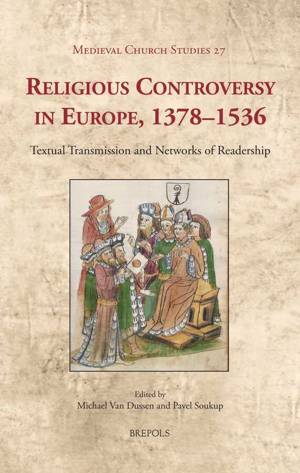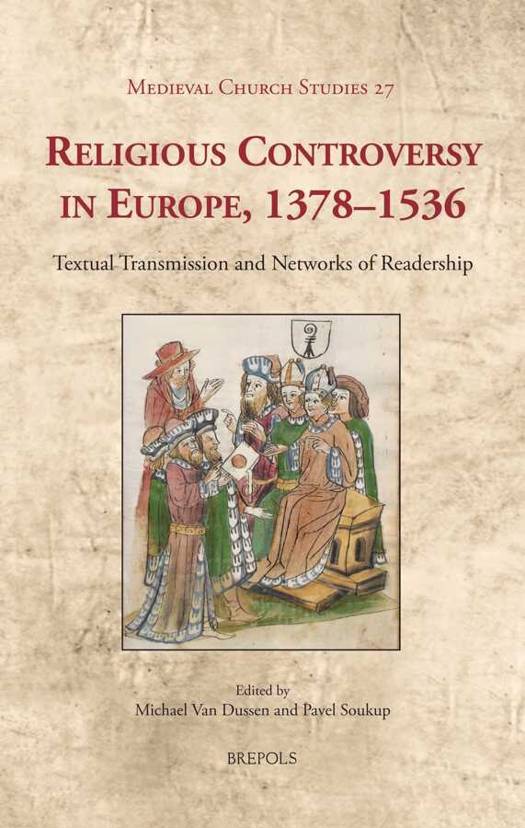
- Afhalen na 1 uur in een winkel met voorraad
- Gratis thuislevering in België vanaf € 30
- Ruim aanbod met 7 miljoen producten
- Afhalen na 1 uur in een winkel met voorraad
- Gratis thuislevering in België vanaf € 30
- Ruim aanbod met 7 miljoen producten
Zoeken
MCS 27 Religious Controversy in Europe, 13781536 Van Dussen
Textual Transmission and Networks of Readership
Michael Van Dussen
Hardcover | Engels
€ 116,60
+ 233 punten
Omschrijving
This book gathers new work by scholars who share a common interest not only in the controversial texts of the period between 1378 and 1536, but also in how the use, geographical movement, and manipulation of texts contributed materially to the formation of groups and group identities. The period covered spans the traditional medieval/early modern divide and the concomitant transition from manuscript to print. The years between the eruption of the Great Schism and the outbreak of European reformations witnessed unprecedented rifts in communities, institutions, and alliances. Yet while the crises of this period gave rise to division, they also prompted new groups to coalesce, resulting in realignments of communication networks, readership, and textual circulation in Europe. The Councils of Constance and Basel facilitated the production and dissemination of vast quantities of documents. Movements challenging the Roman Church and efforts to reform the Church from within provoked a torrent of persuasive and polemical writings which gained further momentum with the introduction of printing. These new situations also fostered the development and expression of group identities, defined by doctrine, opposition, vernacularity, and a burgeoning sense of national self-consciousness. Religious Controversy in Europe, 1378-1536 examines the textual and material circumstances of these developments.
Specificaties
Betrokkenen
- Auteur(s):
- Uitgeverij:
Inhoud
- Aantal bladzijden:
- 358
- Taal:
- Engels
Eigenschappen
- Productcode (EAN):
- 9782503544281
- Verschijningsdatum:
- 4/11/2013
- Uitvoering:
- Hardcover
- Formaat:
- Genaaid
- Afmetingen:
- 157 mm x 234 mm
- Gewicht:
- 748 g

Alleen bij Standaard Boekhandel
+ 233 punten op je klantenkaart van Standaard Boekhandel
Beoordelingen
We publiceren alleen reviews die voldoen aan de voorwaarden voor reviews. Bekijk onze voorwaarden voor reviews.








